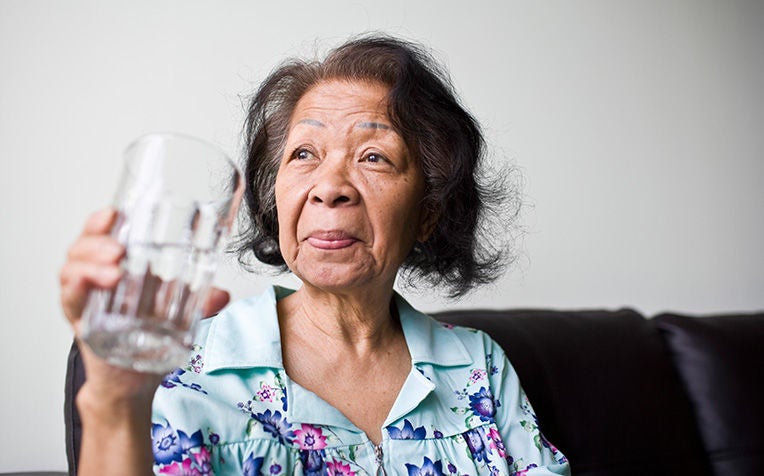HealthXchange will NEVER ask you to transfer money over a call. If in doubt, call the 24/7 ScamShield helpline at 1799, or visit the ScamShield website at www.scamshield.gov.sg.
Nose Cancer Radiotherapy: How to Reduce Side Effects

Nose cancer side effects can be minimised with proper care.
Nose cancer patients should partner with their dentist to better manage the potential oral side effects of radiotherapy.
At SingHealth, nasopharyngeal cancer patients undergoing radiotherapy at the National Cancer Centre Singapore (NCCS) are referred to the National Dental Centre Singapore (NDCS) for oral health management and follow-up care to minimise the oral side effects from radiotherapy.
Your dentist visit before nose cancer radiotherapy
During your dental visit, the dentist will do a clinical examination and together with the x-rays of your teeth and gums, will check for any dental decay (cavities) and other dental condition that may cause problems during or after radiotherapy.
"If you’re suffering from a dental problem, you will be required to undergo treatment before starting radiotherapy," says Dr Christina Sim, Senior Consultant, Prosthodontic Unit, Department of Restorative Dentistry, National Dental Centre Singapore (NDCS), a member of the SingHealth group.
Throughout and after the treatment, the dentist will also regularly monitor your oral health, providing help to manage and prevent side effects and educating you on proper home care suitable for nose cancer patients.
Oral care tips for nose cancer radiotherapy
Though most of the side effects of nose cancer radiotherapy are not life-threatening, some of them may be lifelong, which can greatly affect the quality of life, especially with life expectancy increasing year on year.
Here are tips on how to relieve and minimise the oral side effects of radiotherapy for nose cancer:
- Relieve dry mouth by drinking as much fluids as possible. During meals, have a sip of drink between each bite, or have pureed food or foods served with sauces and gravy. If eating gets difficult, ask your doctor to prescribe liquid food supplements.
- Soothe mouth soreness by rinsing your mouth with warm alkaline saltwater solution. The solution consists of one teaspoon salt and one teaspoon baking soda, dissolved in a 240ml glass of warm water.
- Prevent tooth decay by brushing and applying fluoride to your teeth regularly. Besides the use of fluoridated toothpaste, the use of fluoride gel helps to minimise the risk of dental caries.
- Avoid alcoholic beverages and tobacco use.
- Avoid very sweet and spicy foods.
- Perform mouth stretching exercises (for up to 10 minutes, 10 to 15 times daily) to reduce the risk of trismus.
- Avoid using alcohol-based mouthwashes as they may worsen mouth sores.
- Avoid wearing dentures during the treatment period.
Ref: M19
Contributed by
Related Articles
Public Events
Get the Health Buddy App
© 2025 SingHealth Group. All Rights Reserved.


















 Get it on Google Play
Get it on Google Play